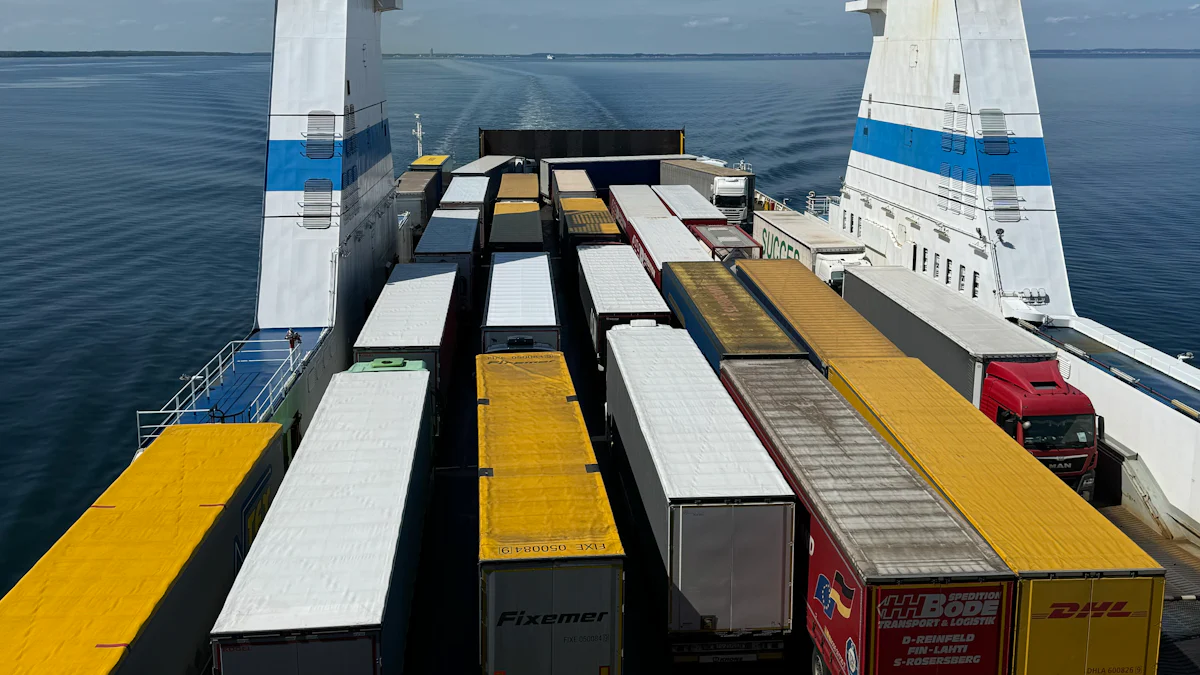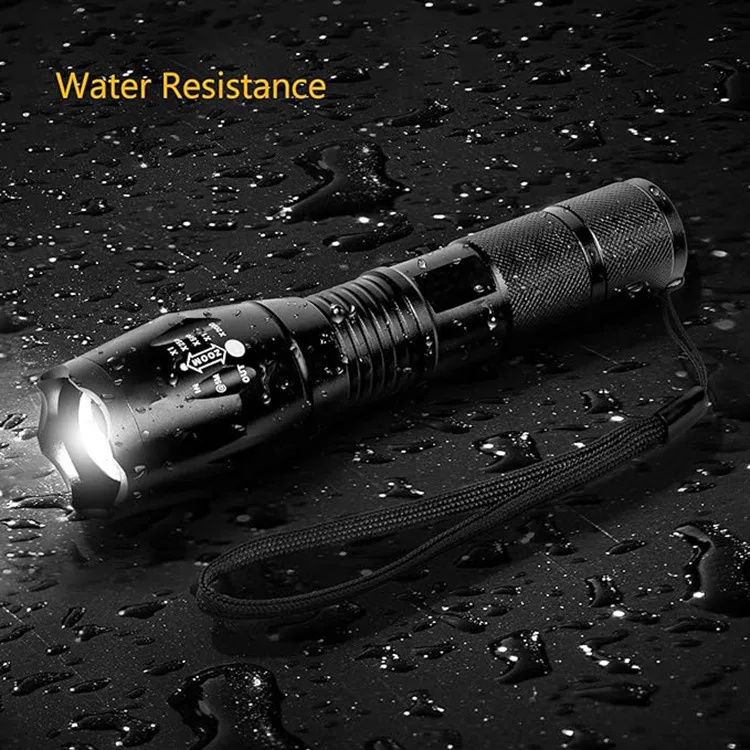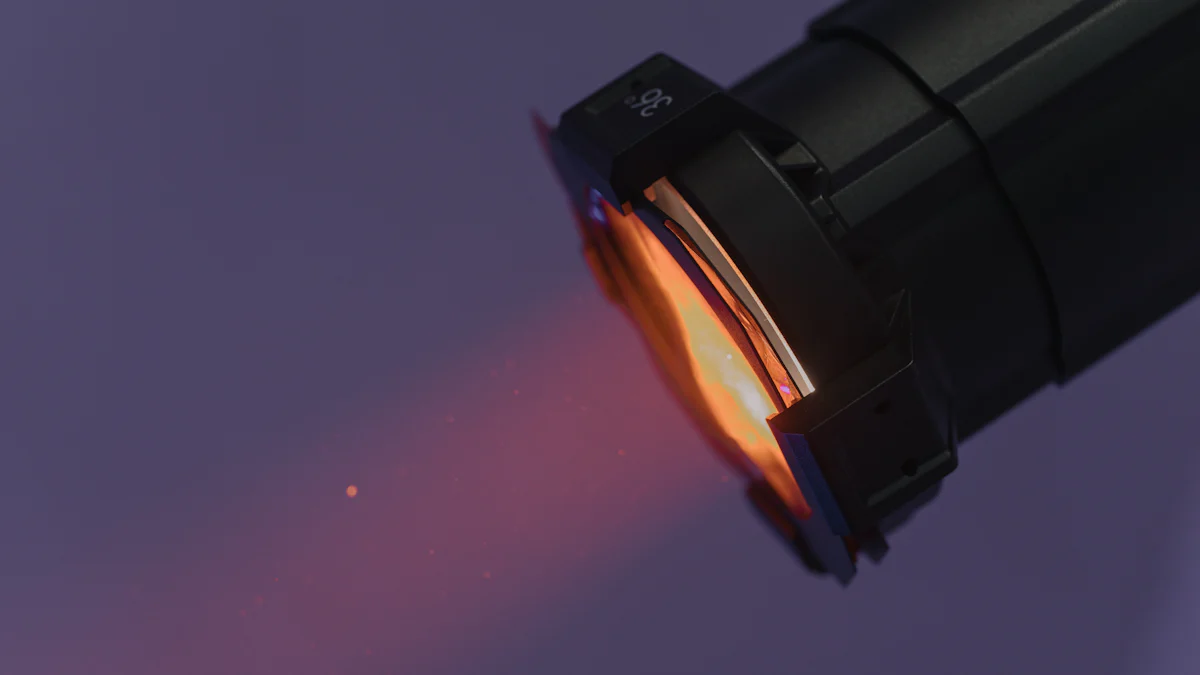What to Know About Shipping Flashlights Across International Borders

Shipping flashlights internationally requires careful planning, especially when considering what to know about shipping flashlights across international borders. You must follow strict regulations, particularly when dealing with batteries. Lithium-ion batteries, commonly used in flashlights, demand extra attention. Damaged or defective batteries, such as those that leak or swell, are prohibited. Larger lithium batteries need UN-certified packaging to meet safety standards. Working with an experienced shipping partner can help you avoid mistakes. Always check the rules for your destination to ensure compliance. Proper preparation not only prevents delays but also ensures the safe delivery of your flashlight.
Key Takeaways
Learn shipping rules for other countries. Check the rules for your destination to avoid problems or fines.
Get the right shipping papers. Add an invoice, packing list, and origin certificate for easy customs approval.
Use strong packaging. Keep flashlights and batteries safe with sturdy, waterproof materials.
Label packages clearly. Write correct recipient details and handling instructions to avoid mistakes.
Pick a trusted shipping company. Choose one that knows how to ship lithium batteries safely and on time.
Understanding International Regulations
Rules for Shipping Flashlights
Shipping flashlights internationally involves adhering to specific regulations to ensure compliance and avoid delays. Many countries require detailed documentation for customs clearance. For example:
A Commercial Invoice outlines the value and description of the flashlight.
A Packing List provides details about the shipment's contents, including weight and dimensions.
A Bill of Lading (BOL) serves as a contract between you and the carrier.
A Certificate of Origin verifies the manufacturing location of the flashlight.
Some countries, like Saudi Arabia, demand additional certifications, such as the SASO Certificate of Conformity (CoC) and an Energy Efficient Label (EEL). Always check the import/export requirements of your destination to avoid penalties or delays.
Shipping Lithium Batteries Safely
IATA Dangerous Goods Label Requirements
When shipping lithium batteries, you must comply with the International Air Transport Association (IATA) Dangerous Goods Regulations. These rules require proper labeling to identify hazardous materials. Packages containing lithium batteries must display a Class 9 hazard label, along with a lithium battery handling label. Failure to comply can result in severe penalties.
Violating hazardous materials regulations may lead to civil penalties of up to $78,376 per violation. In cases involving serious harm, fines can exceed $182,877.
UN Numbers and Shipping Names
Lithium batteries are classified under specific UN numbers to ensure safe handling. For instance:
UN3480: Lithium-ion batteries shipped alone.
UN3481: Lithium-ion batteries packed with or contained in equipment.
Always include the correct UN number and shipping name on your documentation. This step ensures compliance with international regulations and reduces the risk of shipment rejection.
Documentation for International Shipping
Customs Declarations
Accurate customs declarations are critical for smooth shipping. You must include key documents, such as:
A Commercial Invoice detailing the transaction, product description, quantity, and value.
A Packing List breaking down the shipment's contents.
A Certificate of Origin verifying the flashlight's manufacturing location.
Incomplete or incorrect documentation can lead to delays or fines. Creating a checklist for required documents can help you avoid common mistakes.
Safety Certifications
Some countries require additional safety certifications for importing lithium batteries. For example, Saudi Arabia mandates the SASO Certificate of Conformity, while Qatar requires a Certificate of Conformity (CoC). Partnering with experienced customs brokers can help you navigate these requirements effectively.
Packaging and Shipping Guidelines

Packing Flashlights for Safety
Protecting the Flashlight Body
When preparing a flashlight for international shipping, you need to ensure its body remains intact during transit. Use durable materials to shield the flashlight from potential impacts. Recommended options include:
Corrugated cardboard for a sturdy outer layer.
Molded pulp to cradle the flashlight securely.
Foam inserts to absorb shocks.
Bubble wrap for added cushioning.
These materials provide excellent protection and reduce the risk of damage during handling.
Preventing Transit Damage
To prevent transit damage, pack the flashlight snugly to avoid movement inside the box. Use moisture-resistant materials to protect against humidity or accidental spills. Seal the package with strong adhesive tape to keep it secure. Label the box as "Fragile" to alert handlers to take extra care.
Packaging Lithium Batteries
Approved Packaging Materials
Lithium batteries require special attention due to their potential hazards. Always use approved packaging materials to ensure safety. These include:
Durable corrugated boxes.
Bubble wrap for insulation.
Foam inserts to prevent movement.
Moisture-resistant materials to guard against leaks.
Failing to use proper materials can lead to serious risks, as shown below:
Risk Type | Description |
|---|---|
Fire Hazards | Improper packaging can lead to short circuits and overheating, resulting in difficult-to-extinguish fires. |
Thermal Runaway | A chain reaction that can lead to a violent release of stored energy and flammable gas. |
Regulatory Penalties | Using unauthorized packaging can result in significant fines and legal repercussions. |
Separating Batteries from Devices
Always separate lithium batteries from the flashlight when possible. This reduces the risk of short circuits and makes the package safer for transport. Place the batteries in individual protective sleeves or compartments. Clearly label the package to indicate the presence of lithium batteries.
Choosing a Shipping Carrier
Carrier-Specific Battery Rules
Different carriers have specific rules for shipping lithium batteries. For example, some may limit the quantity of batteries per package, while others may require additional documentation. Research the carrier's guidelines to ensure compliance.
Comparing International Options
Selecting the right carrier is crucial for smooth delivery. Consider these options:
USPS: Affordable rates but slower delivery for international shipments.
UPS: Reliable tracking and expedited services for time-sensitive orders.
FedEx: Excels in express shipping with strong customer support.
DHL: Specializes in international shipping with fast delivery options.
To optimize costs and efficiency, compare rates and delivery times using multi-carrier shipping software. Consolidating shipments and negotiating lower rates based on volume can also help reduce expenses.
Common Challenges and Solutions

Customs Delays
Accurate Documentation
Customs delays often occur due to errors in shipping documents. You must ensure all paperwork is accurate and complete. Include essential documents like commercial invoices, packing lists, and certificates of origin. Double-check details such as product descriptions, quantities, and values. Errors in these areas can lead to significant delays.
Common causes of customs delays include:
Material shortages
Transportation issues
Miscommunication with suppliers
Port congestion
Errors in shipping documents
Creating a checklist for required documents can help you avoid these issues.
Country-Specific Rules
Every country has unique import/export regulations. To ensure compliance:
Complete accurate documentation, including commercial invoices and packing lists.
Label shipments correctly, including necessary handling instructions.
Check for product-specific regulations, such as certifications for electronics.
Stay updated with regulation changes by subscribing to industry newsletters.
Following these steps minimizes the risk of delays and ensures smooth customs clearance.
Non-Compliance Issues
Avoiding Common Mistakes
Non-compliance with international shipping regulations can result in severe penalties. For example, failing to label lithium batteries properly or using incorrect packaging can lead to fines. To avoid these mistakes, always follow carrier-specific guidelines and international regulations.
Resolving Penalties
If you face penalties, take corrective actions promptly. Assign responsibilities for compliance tasks and prioritize corrective actions based on risk levels. Foster a culture of compliance by training employees and encouraging open communication. Regularly monitor progress to ensure continuous improvement.
Violation Type | Updated Maximum Penalty |
|---|---|
Knowingly violating hazardous material law | |
Violations resulting in death or serious injury | $175,000 |
Training violations | $450 |
Managing Costs and Delivery Times
Reducing Shipping Costs
Shipping costs for flashlights can increase due to packaging size, weight, and materials. Use lighter materials like cardboard to reduce expenses. Eco-friendly packaging options can also lower costs while enhancing your brand image. Avoid oversized packages to prevent higher dimensional weight charges.
Ensuring Timely Delivery
Timely delivery requires an optimized shipping supply chain. File customs documentation accurately and on time. Address challenges like port congestion by choosing reliable carriers. Maintaining visibility throughout the shipping process ensures you can resolve issues quickly.
Practical Tips for Smooth Shipping
Researching Destination Regulations
Understanding the regulations of your destination country is essential for smooth shipping. Each country has unique rules for importing products like flashlights and lithium batteries. Some nations may restrict certain materials or require additional certifications. Research these requirements thoroughly before shipping. For example, check if the destination country mandates specific packaging or labeling standards. This step helps you avoid customs issues and ensures compliance with international trade laws.
Stay updated on global shipping standards, such as those set by the International Air Transport Association (IATA) for air cargo or the International Maritime Organization (IMO) for sea freight. These organizations provide guidelines to ensure safe and efficient transport. Subscribing to industry newsletters or consulting with customs brokers can help you stay informed about regulation changes.
Using Durable Packaging Materials
Durable packaging protects flashlights and lithium batteries during transit. Choose materials that resist compression, impacts, and moisture. Options like corrugated cardboard, reinforced plastics, and high-density foam provide excellent protection. Cushioning materials, such as foam inserts, bubble wrap, or molded pulp, absorb shocks and vibrations. These materials ensure your flashlights arrive intact and functional.
For added safety, consider high tensile strength materials like titanium or stainless steel. These materials offer superior protection, especially for high-value shipments. Plastic polymers are another option, particularly for high-temperature environments. They conduct heat more slowly, reducing the risk of damage to lithium batteries. Always select packaging materials based on the specific needs of your shipment.
Labeling Shipments Clearly
Clear labeling is crucial for international shipping. Include the recipient's name, complete address, and contact number with the country code. Add the sender's information for returns. Write the destination country's name in capital letters to avoid confusion. Use printed labels or legible handwriting to ensure clarity.
Follow international standards for labeling and packaging. For instance, adhere to IATA guidelines for air cargo and ISO standards for packaging. Affix customs forms or declarations on the package's exterior as required. Use additional labels like "Fragile" or "Handle with Care" when shipping delicate items like flashlights. Proper labeling not only ensures compliance but also reduces the risk of delays or damage during transit.
Partnering with Reliable Carriers
Choosing the right carrier plays a vital role in ensuring your flashlights reach their destination safely and on time. Reliable carriers offer several advantages that can streamline your shipping process and protect your shipments. Their expertise in handling lithium batteries and other sensitive items ensures compliance with international regulations.
Partnering with a dependable carrier provides you with effective communication and transparency throughout the shipping process. These carriers maintain open lines of communication, offering real-time updates and addressing concerns promptly. Their experience helps you navigate logistics challenges, while their consistency builds trust over time.
Here are some key benefits of working with reliable carriers:
On-Time Deliveries: Timely deliveries help you avoid penalties and maintain inventory levels.
Enhanced Shipment Security: Trusted carriers use advanced tracking systems and secure packaging to minimize risks like theft or damage.
Cost Savings: While unreliable carriers may seem cheaper, they often lead to higher costs due to delays or damages. Reliable carriers reduce these risks.
Improved Customer Satisfaction: Consistent deliveries lead to positive reviews and repeat business, enhancing your brand's reputation.
Scalable Operations: Reliable carriers offer flexible services, allowing you to scale operations during peak seasons.
When shipping flashlights internationally, consider carriers with a robust fleet and infrastructure. Their ability to handle various cargo types efficiently ensures your shipments, including lithium batteries, remain safe and compliant with regulations.
Tip: Research carrier-specific rules for lithium batteries before finalizing your choice. This step ensures compliance and avoids unexpected issues during transit.
Staying Updated on Rules
Staying informed about the latest international shipping regulations is essential for smooth operations. Rules for shipping lithium batteries, in particular, undergo frequent updates to enhance safety and compliance. For example, recent changes include the removal of the phone number requirement on lithium battery marks, effective until December 31, 2026. Additionally, button cells installed in equipment manufactured after January 1, 2008, are now exempt from test summary requirements.
Update Description | Details |
|---|---|
Effective Date | May 10, 2025 |
Removal of Phone # Requirement | No longer required on lithium battery mark; valid until December 31, 2026 |
Test Summary Exception | Not required for button cells in equipment made after January 1, 2008 |
To stay compliant, educate your team about these updates. Hire customs brokers to guide you through complex regulations. Join trade organizations to learn from other shippers' experiences. Verify import and export laws regularly, and ensure your documentation is accurate. Label shipments correctly and check for product-specific regulations to avoid fines or delays.
Note: Subscribing to industry newsletters or consulting with customs brokers can help you stay ahead of regulation changes. This proactive approach minimizes risks and ensures your shipments remain compliant.
Shipping flashlights across international borders becomes manageable when you prepare thoroughly and follow the rules. Start by understanding customs requirements to avoid delays. Prepare essential documents like a commercial invoice, packing list, and certificate of origin. Research duties and taxes to prevent unexpected costs. Use durable packaging and accurate labels to ensure safe transit. Staying updated on trade regulations helps you avoid fines and ensures compliance.
Customs clearance often presents challenges, such as navigating complex tariffs, managing strict labeling rules, and dealing with global shipping delays.
Avoid common mistakes like inadequate documentation or failing to account for port congestion. Establishing a clear return policy can also enhance customer satisfaction. With the right approach, you can make international shipping efficient and stress-free.
FAQ
What is the best way to ship flashlights internationally?
You should use durable packaging and follow all international regulations. Research the destination country’s rules and choose a reliable carrier. Proper labeling and accurate documentation ensure smooth shipping.
Can you ship flashlights with lithium batteries installed?
Yes, but you must follow strict safety guidelines. Use approved packaging and separate the batteries from the flashlight if possible. Label the package to indicate the presence of lithium batteries.
How do you avoid customs delays when shipping flashlights?
Ensure all documentation is accurate and complete. Include a commercial invoice, packing list, and certificate of origin. Research country-specific rules to avoid surprises at customs.
Are there restrictions on shipping flashlights to certain countries?
Some countries have restrictions on importing electronics or lithium batteries. Check the destination country’s import regulations before shipping to avoid issues.
What should you do if your shipment gets delayed?
Contact your carrier immediately to identify the cause of the delay. Review your documentation for errors and ensure compliance with customs requirements. Work with the carrier to resolve the issue quickly.
See Also
Guidelines for Finding Trustworthy Wholesale Flashlight Suppliers
Strategies for Acquiring Quality Flashlights at Wholesale Rates
Comprehensive Manual for Purchasing Wholesale Flashlights from China
